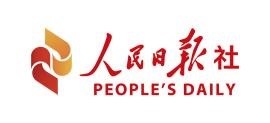By He Yin, People's Daily
The 13th Ministerial Conference (MC13) of the World Trade Organization (WTO), which was seen as an important opportunity to revitalize the multilateral trading system and jointly respond to global challenges, was held from Feb. 26 to 29 in Abu Dhabi, capital of the United Arab Emirates (UAE).
As the first ministerial meeting since the launch of WTO reform, the MC13 of the WTO focused on topics such as WTO reform, the restoration of WTO dispute settlement mechanism, and promoting investment facilitation.
China firmly upholds the multilateral trading system, attaches great importance to the work of the WTO, and will work with all parties to build an open world economy.
At present, the world economy is faced with sluggish recovery, insufficient growth momentum of trade, as well as impacts of acts of protectionism and overstretching the concept of national security, while global challenges including food and energy security, climate change, and imbalance in development are mounting.
The WTO stands as a vital pillar of multilateralism and an important platform for global governance. It has become a common consensus and a general trend to implement necessary reforms of the WTO in line with the times so as to update multilateral trading rules and enable the WTO to play a greater role in global economic governance.
To promote WTO reform, it is imperative to unswervingly defend the authority and efficacy of the multilateral trading system with the WTO at its core, and actively promote the restoration of the normal operation of the WTO dispute settlement mechanism.
In recent years, the multilateral trading system has suffered severe impacts of rising unilateralism and protectionism.
The reform of the WTO should uphold the leading role of the multilateral trading system in the course of global trade liberalization and facilitation, and give priority to addressing critical issues that threaten the survival of the WTO.
Since its accession to the WTO, China has always firmly supported the multilateral trading system, genuinely practiced multilateralism, earnestly fulfilled its WTO commitments, and engaged fully and deeply in the reform of the WTO.
Over the past year, China became the first major developing country to complete the ratification of the WTO Agreement on Fisheries Subsidies, played a key role in successfully concluding negotiations on the Investment Facilitation for Development (IFD), and promoted the conclusion of negotiations on a number of global digital trade rules, making marked contributions to the WTO and global economic and trade development.
At the MC13 of the WTO, the Chinese delegation voiced support for resuming normal operation of the WTO dispute settlement mechanism and incorporating the IFD Agreement into the WTO legal framework, taking practical actions to help the conference achieve more pragmatic results.
China has always played an active and constructive role in the work of the WTO, pointed out WTO director-general Ngozi Okonjo-Iweala, who noted that China thinks about and deals with issues from the perspective of all members while defending its own legitimate rights and interests.
To promote WTO reform, it is imperative to stick to the overall trend of economic globalization, oppose unilateralism and protectionism, resist politicizing, weaponizing and overstretching the concept of national security on economic and trade issues, and build an open world economy.
Unilateralism and protectionism run counter to global sustainable development and are the root cause of the current crisis facing the WTO. The reform of the WTO should confine unilateralist and protectionist practices within an institutional cage.
China has participated fully in the Doha Round negotiations, actively promoted plurilateral trade liberalization, vigorously mobilized support for discussing new issues in the WTO, and pragmatically implemented the Trade Facilitation Agreement, unswervingly pushing ahead the course of economic globalization and contributing Chinese wisdom and solutions to upholding the multilateral trading system.
China plays a pivotal role in the multilateral trading system and has made positive contributions to upholding it, said Morocco's Minister of Industry and Trade Ryad Mezzour.
To promote WTO reform, it is imperative to uphold the WTO's core values and fundamental principles such as openness, inclusiveness and non-discrimination, and ensure the development interests and policy space of developing countries.
In recent years, certain countries have violated WTO rules in pursuit of their own agendas. By carrying out unilateral trade bullying and formulating discriminatory industrial policies, they have disrupted the global industrial and supply chains, seriously affected the international trade order, and undermined the common interests of WTO members.
Guided by the vision of building a community with a shared future for mankind, China has taken concrete actions to support developing countries in integrating into the multilateral trading system.
The 12th China Round Table on WTO Accessions held recently in Abu Dhabi, with the case of Arab countries as an example, brought under the spotlight how to optimize technical assistance and capacity building so as to help more countries in the region join the WTO and benefit from it as soon as possible.
China will continue to carry out South-South cooperation within the framework of the multilateral trading system, further promote relevant endeavors in a substantive way, and contribute to make the multilateral trading system more open, inclusive, balanced and beneficial.
As the largest developing member of the WTO and an active participant, staunch supporter and important contributor to the multilateral trading system, China will continue to support the WTO reform in moving in the right direction, support the inclusive development of the multilateral trading system as well as the legitimate rights and interests of developing members, and support the WTO in playing a greater role in improving global economic governance and promoting world economic prosperity and stability.


